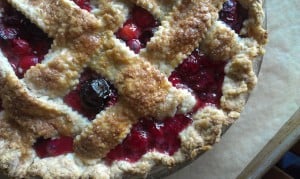I grew up in Abuja, the capital of Nigeria, and when I was younger, my schooling had been a secular as Nigerian schooling can get (which is not really secular at all). When it was time for me to go to secondary school, my mother decided it was best to enrol me in a Catholic school that was run by Jesuits from the United States. At that time, my mother was not thinking about religion; she was not worried that I would become Catholic after spending six years in a Catholic boarding school. The first things on her mind were the quality of education and sending me to a secure environment. The Catholic school had strict regulations for when anyone from the outside could visit students; it was a time capsule of sorts because the students were so sheltered that we were out of touch with most of what was going on in the outside. The campus was in the middle of nowhere, not close to the city centre. Students used to jokingly refer to the school as a “jail” for children because of how restrictive the atmosphere could be.
There were four Muslims in my year, including me. I still remember their names even though I did not get along with most of them, and we may never have talked to each other if it wasn’t for the fact that we shared the same religion. The school was relatively new when I got in, and my set of students was just the fourth year. The number of Muslims in our year was an increase from the previous years; among the students who formed the first (and oldest) year, there were only two Muslim students.
Before secondary school, I was blissfully ignorant about religion and religious tensions in Nigeria. A year or two earlier I had asked my mother if I was Christian or Muslim. This was after the head mistress in primary school said that Christians should say the Lord’s Prayer but Muslims did not have to, and I was confused as to what to do. I had a few friends whose parents were pastors and/or big in church so I would attend church programs with them and learnt more about Christianity than I did about Islam. Prior to leaving home for secondary school, I had also never fasted, at least not for an entire day. I did not understand the importance of Ramadan or the concept behind a month of fasting.
I was 11 years old when I started secondary school, and there I fell quickly into routine with the other Muslim students even though I was relatively ignorant. We would sit in a hall and study while weekday Mass was going on, we would pray together when we could, and when Ramadan came, we would fast together. A few weeks before Ramadan, Muslim parents would usually bring in tins, cans and boxes of food that was kept in the school’s kitchen. This was food that we ate during suhoor and iftar. Ramadan started with the most senior student waking the younger ones for iftar, going from hostel to hostel waking up the Muslim students so that we could head to the dining hall for suhoor. It was at least a five-minute walk from the girls’ hostel to the dining hall, and sometimes there would be no electricity due to power cuts, so we’d walk the distance in the dark with only one or two torchlights (because torchlights were contraband). Suhoor usually consisted of bread, which was left out for us daily by the kitchen staff, sardines or corned beef, butter, and cereal.
Fasting meant we had the freedom to skip meal time in the dining hall and head to the hostels early while the other students were having lunch. We also got extra nice food during iftar and this was a source of pride because school food was standard, and snacks were contraband too. There was a time when one of the Jesuit priests (we call them “Fathers”, “Sisters”, “Brothers” depending on their ranks) from the US, was unhappy with the food Muslims students were eating for iftar. He thought it was unhealthy and he knew better because he had spent years studying Islam; on the other hand, we were just glad to be eating food that tasted of home.
Another interesting thing was that girls would fast for the entire month of Ramadan, even during our periods, because we did not want to have to explain why we were not fasting, and also because we may have been embarrassed by our periods.
On the surface things were good, great even; Muslim students were allowed to fast and we did not have to go to Mass unless it was on specific days such as the Mass of the Holy Spirit. However, negative attitudes towards Muslim students tended to increase during Ramadan as not participating in things other students did led to some unwanted attention. Looking back, I know no child should have to face some of those attitudes. For example, an adult teacher and nun asking; “what is the point of fasting then, if you eat in the early mornings.” I still remember the anger I felt then when I remember her words and smug look on her face now. And I was confused because I could not answer her question but could only invite her to try fasting if she thought it was pointless. Another time, at the girls’ hostel, when we came in early during lunch break, there were two or three men working on something there. These grown men knew we were Muslims and that we were fasting, yet they took that opportunity to talk about how they did not believe in Islam, and how they thought fasting was a joke. Another nun once said that it was dangerous to have more than two Muslims talking together.
On one hand, my experience in the Catholic secondary school taught me the discipline of fasting when you are on your own without much supervision, even though I still did not learn of the spiritual aspects of Ramadan until after I had graduated. Yet, on the other hand, I learnt from an early age what anti-Muslim bigotry looks like.
For more on Ramadan, and to read the rest of the posts in MMW’s Ramadan 2012 series, click here.












